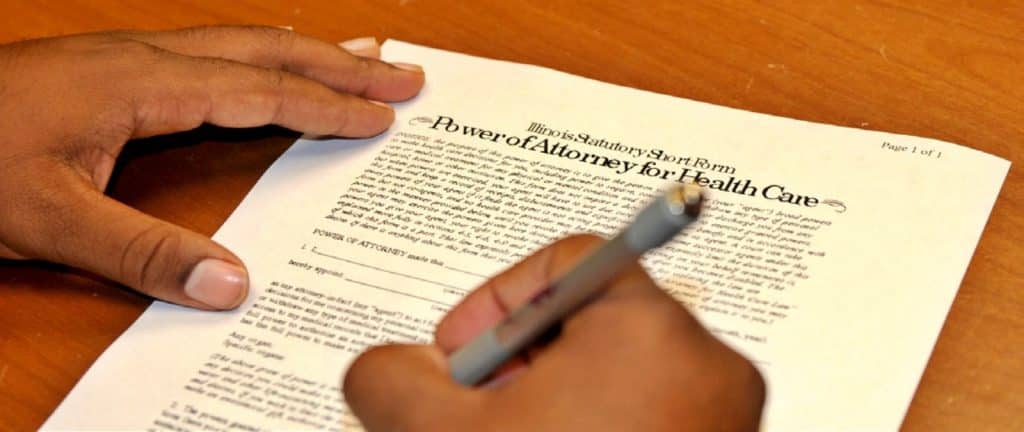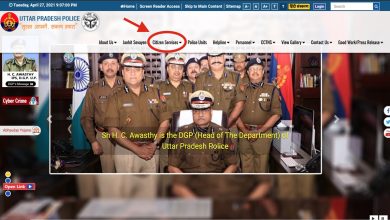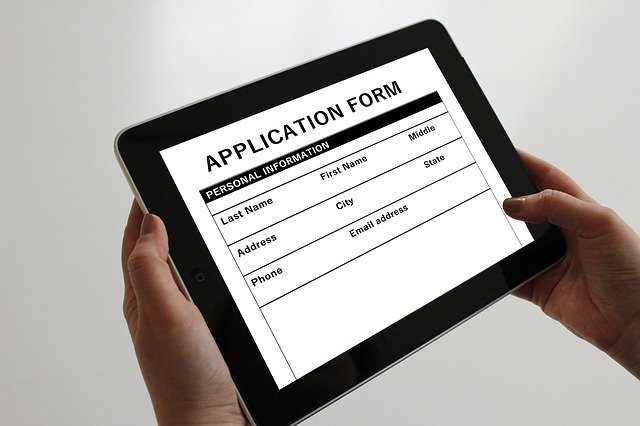Are you in need of a Power of Attorney (PoA)? Let’s say you want to rent your home but you’re living in another state and cannot travel to sign the document.
Or, you want to give someone else the right to sign a legal document on your behalf. In such cases, what you need is a Power of Attorney.
At its core, a Power of Attorney gives someone else the right to act and make decisions on their behalf.
Giving someone a Power of Attorney is a fairly simple process. That said, there are many questions you may have about it.
- What are the main types of Power of Attorney?
- What rights can a PoA holder have?
- What are the documents needed for a PoA?
- What is the validity of a Power of Attorney? Etc.
Keep reading to get answers to some of the most frequently asked questions about a PoA in India.

What is Power of Attorney?
According to the Powers of Attorney Act, of 1882, Power of Attorney (PoA) is a legal instrument that empowers the individual holding the PoA to act on behalf of the individual who issued the PoA.
It is usually used to perform responsibilities related to property, finances and medical affairs. The extent of authority provided to a PoA depends on the granter.
What are the main types of Power of Attorney?
The two main types of PoA in India are:
General Power of Attorney (GPA)
A GPA lets an individual give another person the authority to act on their behalf for a range of activities related to the subject matter of the PoA.
The powers of the GPA holder are not limited to one specific action.
A GPA could be issued for matters including managing rental property, conducting business transactions, signing legal papers etc.
For example, A PoA holder holding a GPA for lease of a property could sign a lease agreement on behalf of the property owner, accept payment on behalf of the individual, get maintenance works done on behalf of the owner, give termination notice to a tenant etc.
Special Power of Attorney (SPA)
A SPA grants the PoA holder powers and authority to act on behalf of the principal only in specific cases and in specific manner.
For example, a person may be given Special Power of Attorney to present a document for registration, but this does not permit him/her to accept payment on behalf of the property holder too.
What are the clauses a Power of Attorney must contain?
A PoA must mention:
- The full name, address, age and occupation of the principal/ person giving authority
- The full name of the person being granted authority
- A legally valid reason for granting Power of Attorney
- Date and place of the Power of Attorney deed
- Date from which the Power of Attorney comes into force
- Date of termination of Power of Attorney OR specification as to whether the Power of Attorney is a Durable/ Non-Durable PoA.
- Acts and areas in which the individual grants power to the PoA holder to act on his/ her behalf
How to issue a power of Attorney in India?
A PoA is a powerful legal instrument and hence must be created with care.
- Step 1: Choose a trustworthy attorney to act on your behalf. The individual may/ may not be related by blood.
- Step 2: Draft the Power of Attorney document. It is best to do this with the help of a lawyer.
- Step 3: Notarize the document by a Notary Public. This involves having the notary verify the identities of the parties involved and affixing their signature and seal to the document.
- Step 4: Have the PoA document signed by 2 witnesses
- Step 5: Register the PoA with the Sub-Registrar in whose jurisdiction the PoA grantor resides.
What rights can a PoA holder have?
The rights of a PoA holder depends on the terms of the PoA. Typically, a GPA can act on behalf of the principal to:
- Make decisions regarding the principal’s personal, investment or business affairs
- Take legal action on his/ her behalf
- Sign legal documents
- Receive payments
- Bargain rental leases and collect rentals
- Borrow/ mortgage/ sell property unless otherwise specified
- Open bank accounts and issue cheques
- Execute deeds, contracts, bonds, drafts, money orders, etc.
- Resolved property-related issues
- Pay rent/ mortgage
- Hire workers
- Make decisions about the principal’s medical needs according to his/ her intentions
What are the limitations of a Power of Attorney?
While a PoA has many rights, they are governed by certain limitations that do not allow them to:
- Go beyond the scope of power granted in the PoA document
- Delegate authority to act on behalf of the principal to anyone else
- Go against the best interests of the principal
- Make legal or financial decisions after the principal has died
- Disburse assets and inheritance after the principal’s death
- Use the principal’s assets/ money as if it were theirs
- Make decisions related to the use of discretionary funds or tax planning
- Transfer the principal’s money to their own account
Who can get a PoA?
Anyone capable of making sound decisions can make a PoA.
The PoA must be physically and mentally capable of executing decisions on behalf of the principal. The individual must be older than 18 years of age.
What are the documents needed for a PoA?
The key documents required for a PoA are:
- Document verifying the principal and proposed PoA holder’s name, address and signature
- Proof of identity for the Principal and proposed PoA holder
- Proof of identity for 2 witnesses
- 2 recent passport-sized photographs of both parties
Is Registration of Power of Attorney required?
Registration of Power of Attorney is not compulsory according to Indian law but is recommended.
That said, registration is mandatory if the rights afforded by the PoA are concerning immovable property valued at more than Rs 100.
What is the Stamp Duty payable on PoA?
Stamp duty is payable on execution of PoA in India. The value of stamp duty payable varies depending on the state of execution of the PoA, the purpose for which the PoA is given, the relation between the principal and the PoA etc.
In the case of issuing a GPA for property sale in the name of a blood relative such as the principal’s parents, sibling, spouse, child, or grandchild, a lesser stamp duty and registration fee are payable.
However, If GPA is issued to a person who is not a blood relative of the principal, the PoA is treated at par with a conveyance deed and Stamp Duty payable is calculated as per the market value of the property or the proposed sale consideration.
What is the process for registration of Power of Attorney executed outside India?
A PoA for NRIs outside India can be completed at their local Indian Embassy. There are two ways this may be registered:
- Legalization: This involves an Indian Embassy/Consulate accredited representative verifying the signature of the judge/notary who witnessed the signing of the PoA. This document does not need to be stamped at the time of execution but must be stamped within 3 months of receipt in India. Stamp Duty is payable at the time of registering the document.
- Apostilling: Apostilling a PoA is a process governed by the Hague Convention of 1961. An Apostille refers to a certificate verifying and confirming the signature of the deed executor. This document must be formatted according to the Indian Registration Act, of 1908, and the Power of Attorney Act. Stamp Duty is payable after the document is received in India.
What is the validity of a Power of Attorney?
The validity of a PoA may or may not be specified on the document. A Power of Attorney in India typically remains valid till
- (i) the time specified in the PoA, or
- (ii) till it is revoked by the principal, or
- (iii) till the Principal is alive; or
- (iv) till the purpose for which the PoA was executed is achieved.
What is the difference between a revocable and irrevocable power of attorney?
Depending upon the capability of the grantor to cancel a PoA, the PoA is categorized into two, revocable and irrevocable.
A Power of Attorney can be categorized as revocable if the principal maintains the right to take back the power given to the agent.
Once revoked, the PoA ceases to exist and agent cannot take further actions or make any decisions on behalf of the principal.
An irrevocable Power of Attorney is one that cannot be cancelled by the principal, except in exceptional circumstances.
To be categorized as irrevocable, the document must have a provision stating that the principal gives up the right to revoke the PoA.
What are the instances for automatic cancellation of Power of Attorney?
Some of the circumstances for automatic cancellation of a PoA are:
- The PoA holder loses the mental capability to make sound decisions
- The PoA holder dies
- The PoA holder is deemed to be insolvent by a court
- The PoA holder independently gives up the Power of Attorney
- The purpose for which the Power of Attorney was issued is completed
- The principal is legally separated/ divorced from the spouse/ registered domestic partner holding the PoA
What are the steps for revocation of Power of Attorney in India?
There is no specific law governing the revocation of Power of Attorney in India. To take back this power the principal must:
- Step 1: Draft a notice of revocation stating the reason for revoking PoA rights and the date from which the PoA is to be revoked.
- Step 2: Serve the notice of revocation to the PoA holder
- Step 3: Inform relevant parties by publishing the notice in a local/ national newspaper
- Step 4: Register the cancellation with the authority that registered the PoA
- Step 5: Send a copy of the cancellation notice to the agent and parties that have been dealing with him/ her on behalf of the principal
What is the difference between a Power of Attorney and a Will?
The main difference between a Power of Attorney and a Will is that a PoA is valid only so long as the principal is alive, while a Will comes into effect after the principal has died.
An individual may have a medical PoA and a Living Will to make decisions related to their medical care.
Is it legal to use a Power of Attorney for Property Sale?
It is legal for a person who holds a validly executed, duly stamped and registered PoA for property in India to execute a property sale.
It should be kept in mind that a PoA issued to a non-blood relatively will carry a significantly higher stamp duty than one issued to a blood relative.
Know more on the law on using PoA for sales.
 Process Of Court Marriages In India
Process Of Court Marriages In India How To File An Online FIR In UP – All You Need To Know
How To File An Online FIR In UP – All You Need To Know Can You File An Online FIR In Bangalore? Key Facts You Need To Know
Can You File An Online FIR In Bangalore? Key Facts You Need To Know How To File Online FIR In Delhi Police And Report Theft
How To File Online FIR In Delhi Police And Report Theft